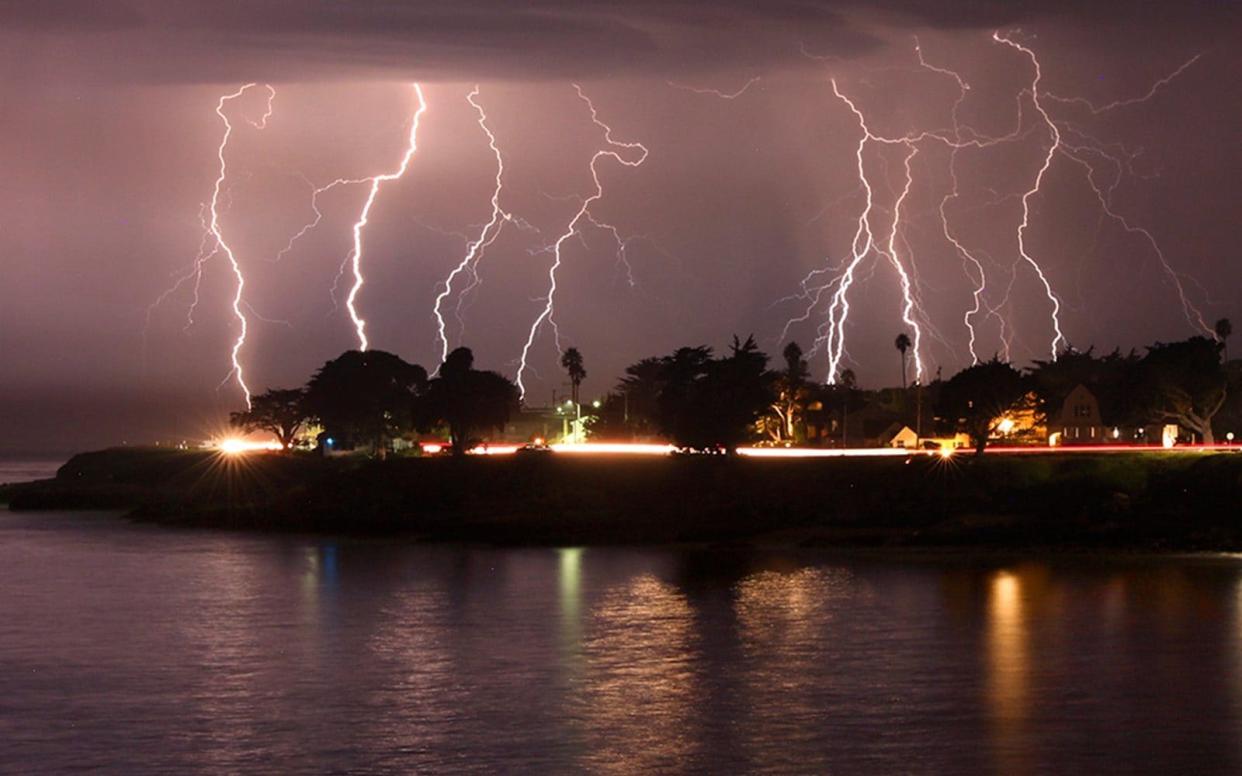Extreme weather is new normal, as 2021 becomes among hottest on record

Extreme weather is the new normal, the United Nations said on Sunday, with 2021 among the hottest on record and an “annus horribilis” for floods and heatwaves.
The last seven years are on track to be the hottest on record, with this year likely to be the fifth or seventh, only because of the temporary cooling effect of the “La Niña” event, according to the World Meteorological Organisation’s annual State of the Climate report.
Sea level rise has more than doubled since the 1990s, to reach an average of 4.4mm a year.
Watch: What will the world look like in 2030, 2040, 2050?
The figures were released early for 2021, to inform negotiations at the Cop26 climate summit which Antonio Guterres, the UN secretary general, said must be a “turning point”.
Mr Guterres said the new report showed that the world was “changing before our eyes”.
Prof Petteri Taalas, the secretary general of the World Meteorological Organisation, highlighted that there had been rain “for the first time on record at the peak of the Greenland ice sheet”, heatwaves in the US that reached 54.4C and devastating flooding in Europe and China.
“Extreme events are the new norm,” said Prof Taalas. “There is mounting scientific evidence that some of these bear the footprint of human-induced climate change.”
The report also highlighted that much of the world’s oceans experienced at least one “strong” marine heatwave at some point in 2021.
Meanwhile, Western Europe had its most severe flooding on record, with more than 200 deaths in mid-July, and 302 people were killed in China as extreme rainfall hit Henan province, causing a record 201.9mm (7.9 inches) of rain in one hour in its main city, Zhengzhou.
There were also abnormally cold conditions in Texas and parts of Europe, drought in parts of southern America, and heatwaves reaching 38C in Siberia, triggering widespread wildfires.
A heatwave in the UK in July is estimated to have killed between 400 and 800 people, and Storm Christoph in January brought one of the wettest three-day periods on record.
Commenting on the study, Prof Hannah Cloke, of the University of Reading, said: “As a scientist primarily studying floods and heatwaves, I believe 2021 should stand out as something of an annus horribilis.”
She added: “The devastating floods in Europe, China and South America, and killer heatwaves and fires in North America and southern Europe for example, ought to serve as a canary in the coal mine to spur faster action to adapt society to the reality of a changing climate.
“We should remember that this canary also represents thousands of unnecessary deaths and billions of dollars’ worth of destruction.”
“I only hope that during the next few days in Glasgow, these facts, which summarise the fates of millions of people, are foremost in the minds of the world’s political leaders.”
Meanwhile, the UK’s Met Office warned the world’s temperature has reached an average exceeding 1C above pre-industrial levels for the past two decades, the first time for a 20-year period since records began in 1850.
The Paris Agreement aims to keep warming to 2C, and ideally 1.5C, and is the focus of the Glasgow Cop26 meeting, with countries urged to make new commitments to keep the temperature targets in reach.
Negotiators say that there is a new global consensus among world leaders about the need to act after seeing the reality of extreme weather over the past couple of years.
Prof Jonathan Bamber, the director of the Bristol Glaciology Centre, said the figures were “yet another wake up call to world leaders that time has run out for talk”.
He said: “Sea levels are rising faster now than at any other time in the last two millennia. If we continue on our current trajectory, that rise could exceed 2m by 2100 displacing some 630 million people worldwide.”
Watch: What is greenwashing?

 Yahoo News
Yahoo News 
